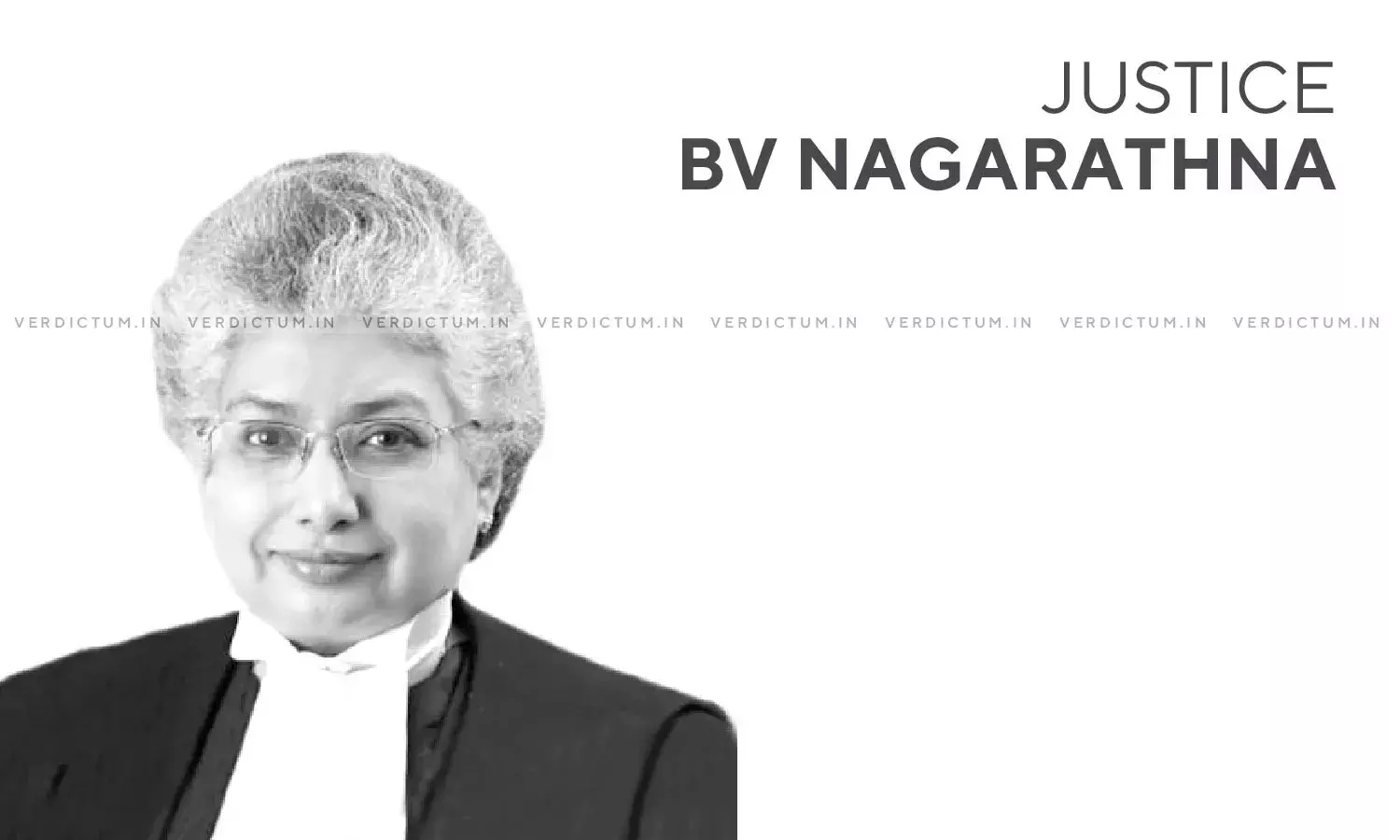Married Men Must Make Available Their Financial Resources Towards 'Homemaker' Wife's Personal Needs: Supreme Court
Justice BV Nagarathna, in her concurring opinion in the landmark judgment on the right of Muslim women to seek maintenance, said that those Indian married men must make available their financial resources for their wife towards her personal expenses.
The Bench of Justice BV Nagarathna and Justice Augustine George Masih, in its judgment, has recently observed that the Muslim woman has the right to seek maintenance under Section 125 of the Code of Criminal Procedure, 1973 (‘CrPC’), despite the enactment of the Muslim Women (Protection of Rights on Divorce) Act, 1986 (‘1986 Act’).
Justice Nagarathna posed a question regarding the position of a wife after her marriage in Indian Society. She said, "Therefore, I observe that an Indian married man must become conscious of the fact that he would have to financially empower and provide for his wife, who does not have an independent source of income, by making available financial resources, particularly towards her personal needs; in other words, giving access to his financial resources. Such financial empowerment would place such a vulnerable wife in a more secure position in the family. Those Indian married men who are conscious of this aspect and who make available their financial resources for their spouse towards their personal expenses, apart from household expenditure, possibly by having a joint bank account or via an ATM card, must be acknowledged."
Both ‘financial security’ as well as ‘security of residence’ of Indian women have to be protected and enhanced.
She highlighted the position of a married woman who is often referred to as a “homemaker” and who does not have an independent source of income and is totally dependent for her financial resources on her husband and on his family. "It is well-known that such an Indian homemaker tries to save as much money as possible from the monthly household budget, not only to augment the financial resources of the family but possibly to also save a small portion for her personal expenses. Such a practice is followed in order to avoid making a request to the husband or his family for her personal expenses.", she added.
She emphasised, "Thus, both ‘financial security’ as well as ‘security of residence’ of Indian women have to be protected and enhanced. That would truly empower such Indian women who are referred to as ‘homemakers’ and who are the strength and backbone of an Indian family which is the fundamental unit of the Indian society which has to be maintained and strengthened. It goes without saying that a stable family which is emotionally connected and secure gives stability to the society for, it is within the family that precious values of life are learnt and built. It is these moral and ethical values which are inherited by a succeeding generation which would go a long way in building a strong Indian society which is the need of the hour. It is needless to observe that a strong Indian family and society would ultimately lead to a stronger nation. But, for that to happen, women in the family have to be respected and empowered!"
She observed that most married men in India do not realise this aspect of the predicament such Indian homemakers face as any request made for expenses may be bluntly turned down by the husband and/or his family and some husbands are not conscious of the fact that the wife who has no independent source of finance is dependent on them not only emotionally but also financially.
"On the other hand, a wife who is referred to as a homemaker is working throughout the day for the welfare of the family without expecting anything in return except possibly love and affection, a sense of comfort and respect from her husband and his family which are towards her emotional security. This may also be lacking in certain households.", she said.
Reference was given to the judgment of Justice Murtaza Fazal Ali in Sirajmohmedkhan Janmohamadkhan vs. Hafizunnisa Yasinkh (1981 SC) in which he acknowledged the paradigm shift from viewing maintenance as a mere charity to a matter of parity and rights, essential for women.
Justice Nagarathna also referred to the judgment in Kirti vs. Oriental Insurance Co. Ltd., (2021 SC) in which contributions of a homemaker get judicial recognition upon her unfortunate death while computing compensation in cases under the Motor Vehicles Act, 1988. "The services and sacrifices of homemakers for the economic well- being of the family, and the economy of the nation, remain uncompensated in large sections of our society.", she added.
Cause Title: Mohd. Abdul Samad v. State of Telangana and Anr. (Neutral Citation: 2024 INSC 506)
Appearances:
Petitioner: Senior Advocate Gaurav Agrawal, Amicus Curiae, Senior Advocate S. Wasim A. Qadri for the Petitioner
Respondents: In person
Click here to read/download the Judgment



